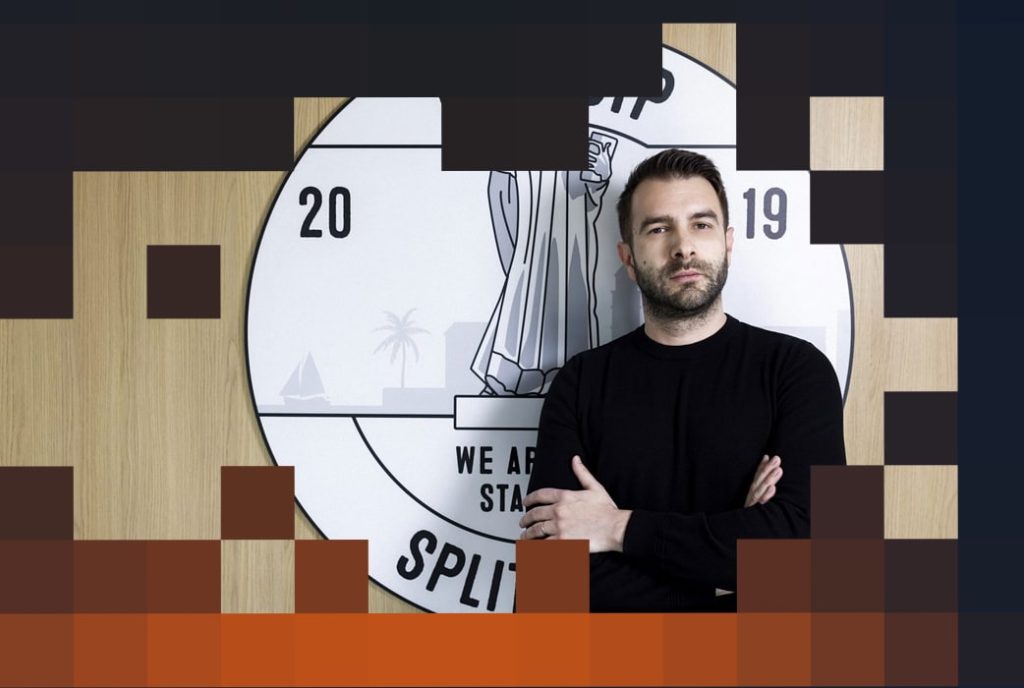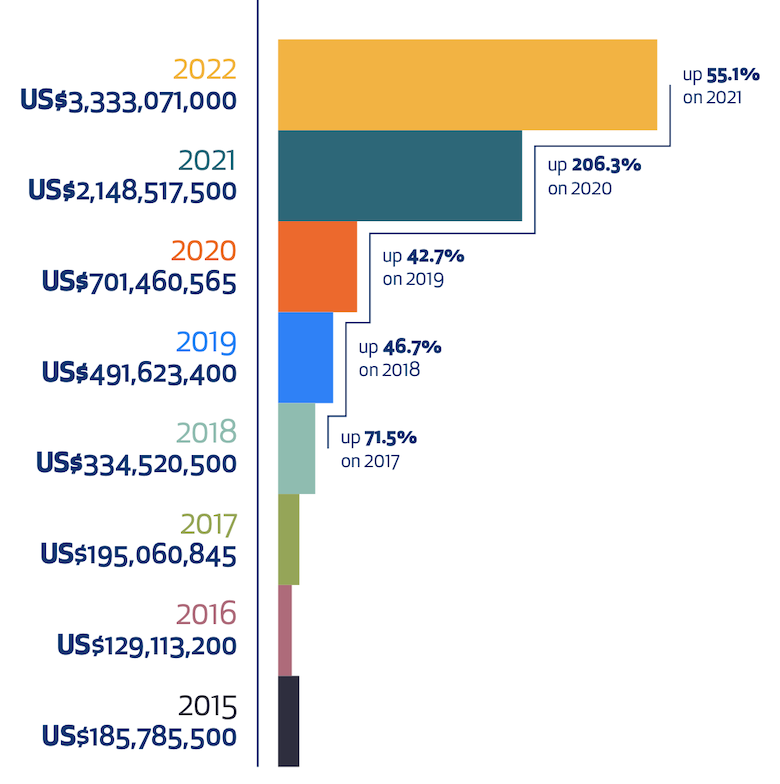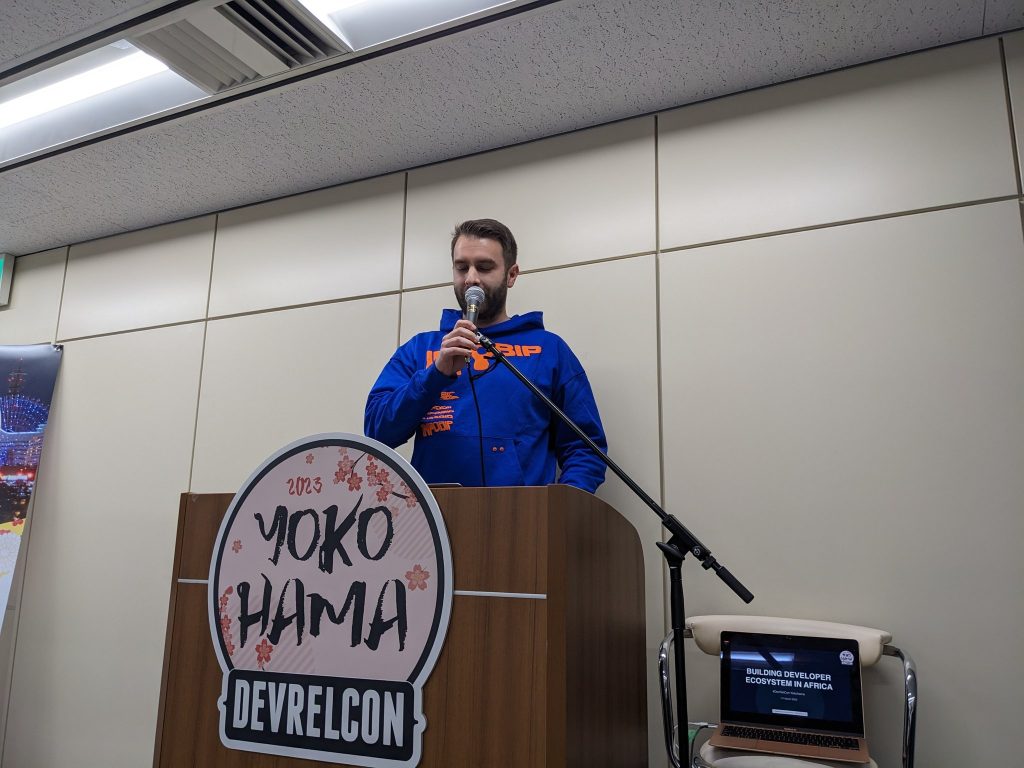
Recently I gave a talk at DevRelCon Yokohama under this very same title. Seeing the interest there, I gathered all our experiences from our meetup tours in a blog post, for everyone looking to grow their tech communities and initiatives across Africa.
The growing tech ecosystem in Africa
Africa’s economy has grown significantly in past years, and 19 of the 20 fastest-growing countries in the world are located on this very continent! Following overall economic growth, Africa’s startup & developer ecosystem has followed that growth curve. Based on The African Tech Startups Funding Report – 2022 by Disrupt Africa, 633 startups from Africa raised US$3,333,071,000, a new record.
It should be noted that the annual funding raised by African startups has increased by over 1,000 % since 2015, which is pretty impressive.

Based on the Africa Developer Ecosystem 2021 report by Google and Accenture, there were 716.000 developers in Africa in 2021. According to the same report, South Africa, Egypt, Nigeria, Kenya, Morocco, Algeria, Tunisia, Cameroon, Ethiopia, and Ghana had the largest concentration of developers.
Two successful meetup tours
With 11 offices across the continent and clients in all countries, Infobip has had a strong presence in Africa for over a decade, but we were primarily focused on enterprise clients.
Some two years ago, the company established its Developer experience department, setting the ambitious goal of becoming a developer-centric company. As a region where we had such a long presence, it made sense to build our ecosystem in Africa – a role that fell to me as a part of the Developer Relations team and a Tech Community Manager.

For those not working in DevEx or on developer-facing products, a developer ecosystem is a community of developers and other stakeholders that enhance the value of a digital platform. Ecosystems are usually powered by APIs and enable third-party development. This helps foster innovation and identify new features much faster.
Last year we organized a couple of tech meetups in Lagos, the biggest city in Nigeria and one of the financial centers of the continent, and one in Accra, Ghana. Turnout at meetups in Africa was amazing, with more than 70 people per event. We met and interacted with talented, ambitious, and successful local developers, startup founders, and tech enthusiasts.

After the success of Lagos and Accra events, we decided to organize a series of in-person events this year, divided into three meetup tours across the continent in the cities where Infobip has offices.
For the February tour, we organized meetups in Accra (Ghana), Nairobi (Kenya), Cairo (Egypt), and Casablanca (Morocco). Turnout at all of those events was great, and we had more than 380 attendees combined.
First-hand tips for organizing a developer meetup in Africa
We organized the meetups in co-working spaces and tech hubs in Accra, Nairobi, Cairo, and Casablanca. This is where many startup and tech companies are located, so it was easy and convenient for them to join our event. Also, co-working and tech hubs usually have big communities on their social media, which helps with visibility and engagement.

We always aim to have a good balance of influential local speakers and speakers from Infobip. Although those are primarily developer events, we often include successful local startups to share their success stories and stories from the local startup ecosystem on our meetups. That way, we expanded our agenda and engaged more event attendees. Developer & startup communities are always connected.
Startup founders are often developers, and developers are always thinking of starting their own ventures, so this combination works out great for our events.
Promotion, promotion, promotion
Regarding promotion, I draw on my experience from different events I organized – conferences, concerts, exhibitions, book promotions, etc. It doesn’t matter what kind of event you are organizing, at least 80% of activities in the organization are the same, and they apply to all types of events.
Working on promotion and gathering people at the event is crucial because when you have an empty venue, it doesn’t matter how much you invested in bringing a fantastic speaker or singer or how much you spend for production and catering – it’s still a flop.
All our meetups were also promoted through our social media channels, as well as Eventbrite and Metups.com platforms, which have their own active audience.
Find help locally

The help of Infobip’s local offices was quintessential for all of our meetups in Africa. If you are organizing an event for the first time, your colleagues in the area can help you with suggestions for a venue, speaker, or event promotion because they know the scene better.
It’s also essential to communicate all the details about our event and showcase to them how a successful meetup can boost and promote Infobip locally – as well as their own efforts.
Colleagues from other departments helped us a lot as well. For example, for the startup speaker, we chose founders from Infobip’s startup initiative – Startup Tribe. Colleagues from the Sales departments handling local clients in Africa shared invitations for the meetup with them.

If you do not have a local presence as a company, you can still harness the power of the local community. Get in touch with local co-working spaces, incubators and accelerators, and different community-building programs. Or founders and companies in the same field or complementary to your business – they are usually happy to foster their community with you.
Having influential local speakers with lots of followers on their social media helps tremendously as well. Once they shared info about our meetup on their social media profile, it helped us promote the event and brought a significant number of attendees. We also had really good support from local media during this tour, especially in Nairobi and Casablanca.

Pics, or it didn’t happen
For each meetup, we hired a professional photographer. You can take photos on your phone, but this is something that I always suggest investing in. Because this is not a high cost, and you need quality material for the post-PR. You may even use it later for the websites.
In the end, if you don’t have photos or videos from your event published on social media after the event, it’s like it didn’t happen. We published the photos and a short recap on Infobip’s social media the day after each meetup. For the meetup in Nairobi, where we had the largest number of attendees, we also had a professional video recap.
Another tour in the making
After we managed to get the attention of the worldwide tech community with our developer meetups in Africa, we’re kicking off our second meetup tour this April & May.
We start with Nairobi on April 26, followed by our first meetup in Kampala (Uganda) on April 27 and Abidjan (Ivory Coast) on May 3.
Join us there, follow us on social media, or come back here for a report and another batch of tips!

